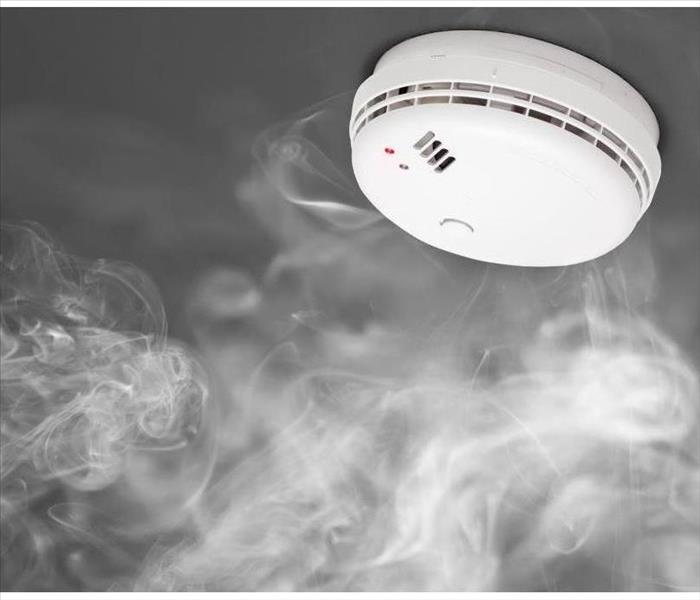Testing Your Smoke Alarms
6/25/2019 (Permalink)
Despite the efforts you make to ensure your home is safe, no home is completely fireproof. A working smoke alarm system is a vital part of an adequate emergency preparedness system. Older smoke alarms need replacement batteries once a year, but the rules change as you upgrade your detectors. Following these inspection tips can help keep your system in top form.
Power Check
First, you want to make sure all your detectors have power. The power source depends on the type of smoke detector you have in your system:
- Battery-operated detectors (9-volt batteries) should have the batteries replaced every year.
- Battery-operated detectors (lithium batteries) should be completely replaced every ten years.
- Hardwired systems should have the backup battery replaced yearly, and the detectors replaced every ten years.
Regardless of the replacement for the battery or detector, fire remediation experts recommend that you test each smoke alarm every month to make sure it's working. Don't rely strictly on a schedule. Replace faulty alarms whenever necessary.
Age Check
No matter where your detectors get their power, all of them must be replaced every ten years to keep the system in shape for detecting fire damage. Checking the age of the devices in your system is easy. Remove each detector from the ceiling or wall and turn it over. The date of manufacture should be printed on the back. As long as the date is within the last ten years and the device is still working, it does not need to be replaced. Return it to its designated spot and make sure that it is linked with the rest of the system.
Testing your smoke alarm system once a month is a crucial part of home maintenance. If you have outdated detectors or your power source is not properly supporting the system, prompt maintenance can help keep you safe during a home fire.


 24/7 Emergency Service
24/7 Emergency Service
